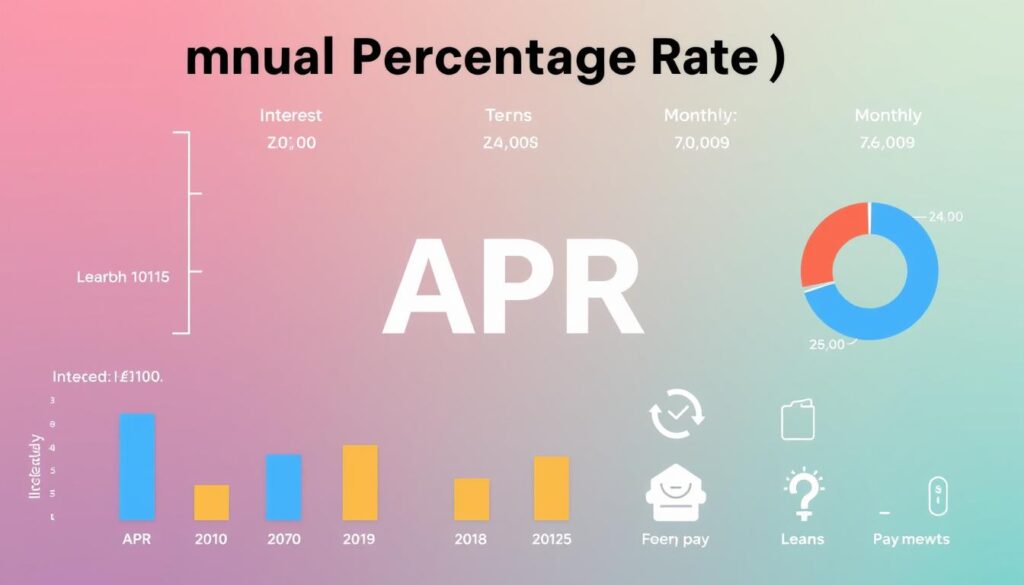Unemployed? Here’s How to Get a Quick Loan

Losing your job can feel like the ground is crumbling beneath your feet. Bills pile up, and panic sets in. You’re not alone. With the U.S. unemployment rate jumping from 3.5% to 4.3% in just a year, many are in the same boat. But there’s hope. Quick loans for the unemployed can be a lifeline when you’re treading water.
You might wonder, “How can I get a quick loan with no job?” It’s a valid question, and we’ve got answers. From emergency loans for the unemployed to alternative income sources, we’ll explore your options. Quick Loans America and similar services are changing the game, providing solutions when traditional banks might turn you away.
Did you know that 10% of adults turn to friends or family for unexpected expenses? While that’s an option, it’s not always comfortable or possible. That’s where emergency loans for the unemployed come in. They can bridge the gap until you’re back on your feet, providing peace of mind during tough times.
In this guide, we’ll walk you through the process of securing a loan without a job. We’ll cover everything from eligibility requirements to avoiding predatory lenders. So take a deep breath, and let’s explore how you can get the financial help you need, even without traditional employment.
Key Takeaways
- Unemployment doesn’t automatically disqualify you from getting a loan
- Alternative income sources can help you qualify for quick loans
- Emergency loans for the unemployed are available from various lenders
- Your credit score and debt-to-income ratio play critical roles in loan approval
- Beware of predatory lenders and understand all loan terms before signing
- Quick Loans America and similar services offer flexible options for the unemployed
- Preparing a strong application can improve your chances of loan approval
Understanding Emergency Loans for the Unemployed
Losing your job can be tough, but emergency loans can help you stay afloat. These loans offer quick cash for unexpected costs when you’re out of work. Let’s explore how they work and what you need to know.
What Defines an Emergency Loan
Emergency loans are quick-access funds for urgent needs. They’re designed to cover sudden expenses like medical bills or car repairs. These loans typically have faster approval times than traditional loans.
Types of Emergency Loans Available
Several options exist for those seeking emergency loans:
- Unsecured personal loans
- Payday loans (with high fees)
- Home equity loans (if you own property)
- 401(k) hardship withdrawals
Quicken personal loans are a popular choice, with competitive rates and terms. But, remember, payday loans often come with triple-digit APRs, so use caution.
Basic Eligibility Requirements
Loan eligibility for the unemployed depends on various factors:
- Alternative income sources (unemployment benefits, alimony, rental income)
- Credit score
- Debt-to-income ratio
- Collateral (for secured loans)
Lenders may view unemployed borrowers as riskier, potentially leading to higher interest rates. Some may require a co-signer or collateral to secure the loan.
“Your ability to repay is key when applying for emergency loans without a job.”
Remember, emergency loans should be a last resort. Consider alternatives like reducing expenses or seeking help from nonprofits before taking on debt.
How Can I Get a Quick Loan with No Job
Getting quick loans in America without a job might seem hard, but it’s doable. Lenders focus more on your income than if you have a job. Let’s look at how you can get loans without a job and what income sources lenders accept.
Alternative Income Sources Lenders Accept
Lenders look at different income sources for loan approval:
- Unemployment benefits
- Social Security or disability payments
- Alimony or child support
- Investment dividends
- Rental income
- Freelance or contract work
Documentation Required for Application
When applying for loans without a job, you’ll need to provide:
- Proof of identity (driver’s license or passport)
- Proof of address (utility bill or lease agreement)
- Income verification (bank statements or benefit letters)
- Tax returns (if applicable)
Pre-Application Preparation Steps
Before applying for quick loans in America, take these steps:
- Check your credit score and report for errors
- Calculate your debt-to-income ratio
- Gather all necessary documents
- Research lenders and compare offers
- Consider getting pre-qualified to avoid impacting your credit score
Remember, a debt-to-income ratio above 50% may hurt your chances of approval. Also, be careful of predatory lenders that offer loans without checking your income. They often charge very high interest rates.
Qualifying Factors Beyond Employment Status
Getting a loan is more than just having a job. Lenders check many parts of your financial life to see if you’re right for a loan.
Credit Score Requirements
Your credit score is very important for loan approval. Most lenders want scores of 600 or higher. For example, Upgrade will accept scores as low as 580.
If your score is below 690, you might face interest rates from 17.80% to 32%.
Debt-to-Income Ratio Considerations
Your debt-to-income ratio is also key. Lenders usually like ratios at or below 36%. But, some might go up to 50%.
Asset and Collateral Options
Having assets can help your loan application. Some lenders accept savings or CDs as collateral. Homeowners might look into home equity loans.
These can make you more likely to get approved and might get you better terms.
Lenders look at your whole financial situation. They check your credit history, income, and debts. Some, like Prosper, let you add co-borrowers to help qualify.
Be ready to show proof of income, like pay stubs or tax returns.
“Your financial health is more than just employment. It’s about managing your debts, maintaining good credit, and having a solid asset base.”
When looking at loans, watch out for high-interest options like pawnshop or payday loans. They can have APRs over 100%, leading to debt traps.
Best Lending Sources for Unemployed Borrowers
Getting quick loans uk when you’re unemployed can be tough. Credit union loans often have better terms and lower interest rates. They’re great for those without a steady job. Some credit unions even offer payday alternative loans with capped APRs.
Online lenders are popular for jobless borrowers. They don’t check income as strictly. They might look at unemployment benefits or disability payments. Peer-to-peer lending sites can also approve loans if you show proof of income.

Traditional banks like U.S. Bank and Old National Bank offer personal loans. But, their requirements are stricter. If you have a good credit score, you might get loans with APRs from 6.99% to 25.49%. Some lenders, like LightStream, offer same-day funding with no origination fees.
- Credit unions: Flexible terms, lower rates
- Online lenders: Less strict income verification
- Peer-to-peer platforms: Consider alternative income
- Traditional banks: Stricter requirements, but lower rates for good credit
Don’t forget about government programs and local non-profits. They might offer emergency financial aid or low-interest loans. These can be a big help if you’re struggling to meet basic needs while unemployed.
Strategies to Improve Loan Approval Chances
Getting a loan without a job is tough, but there are ways to make it easier. Here are some tips to help you get the financing you need.
Getting a Co-Signer
A co-signer can really help your loan application. They promise to pay the loan if you can’t. Pick someone with a steady income and good credit. Remember, this is a big ask for your co-signer.
Building a Strong Application Package
To improve your loan application, start by preparing well. Collect all needed documents, like bank statements and tax returns. Explain any job gaps and talk about your future job plans. A well-organized application shows you’re serious and responsible.
Demonstrating Alternative Income Streams
Lenders want to see you can pay back the loan. Show all your income, like alimony, disability payments, or freelance work. Even unemployment benefits might count as income. Be ready to prove each income source.
- Maintain a strong credit score
- Keep your debt-to-income ratio under 36%
- Consider secured loans using assets as collateral
- Apply for a smaller loan amount to increase approval odds
Lenders see unemployed borrowers as riskier. You might get higher interest rates or fees. Always read the loan terms before signing. With these strategies, you can boost your chances of getting a loan, even without a job.
Understanding Loan Terms and Conditions
When you’re looking for a loan without a job, knowing the terms is key. This knowledge helps you make smart choices and avoid money troubles.
Interest Rates and APR Explained
Interest rates on personal loans can be anywhere from 5% to over 35%. The APR includes the interest rate and extra fees. For people without jobs, rates are often higher because lenders see more risk.

Repayment Terms and Options
Repayment plans vary by lender and loan type. Loan amounts can be from $1,000 to $100,000. Repayment times range from months to years. Some lenders offer flexible plans or help for those having trouble paying back.
Hidden Fees and Charges to Watch For
Watch out for hidden costs in loan agreements. Origination fees can be up to 8% of the loan. Other fees include prepayment penalties, late fees, and returned payment fees. Always check the fine print before you sign.
“You should consider how you will pay back your loan before applying for it, as it is a serious financial commitment.”
It’s vital to understand loan terms, APRs, and repayment options, even more so when you’re unemployed. Take your time to review all details and ask questions before agreeing to any loan.
Avoiding Predatory Lenders and Loan Scams
When you need quick cash, it’s key to avoid predatory lending and loan scams. Real lenders check your application before saying yes. Be wary of deals that seem too perfect.
Look out for warning signs in loan offers:
- Requests for upfront fees
- Pressure to make quick decisions
- Lenders promising loans without checking your income
- Interest rates higher than 36% APR
To borrow safely, research the lender’s reputation and check their license. Use official websites and contact info to see if they’re legit. Always read loan terms fully before signing.
“If it sounds too good to be true, it probably is.”
Payday loans often have APRs of 391% because of high fees and short payback times. Instead, look into payday alternative loans from credit unions. They offer up to $2,000 with repayment terms from 1 to 12 months and interest capped at 28%.
Real lenders don’t ask for upfront fees or promise approval without checking your credit. If you find suspicious offers, tell the Federal Trade Commission. This helps keep others safe from loan scams.
Conclusion
Finding emergency loans when you’re unemployed can be tough, but there are ways to get help. Apps like Viva Us Loan, BlueRiverLoan, and Wizzay let you borrow money without needing a job. They offer fast access to cash, sometimes on the same day if you apply early enough.
Keep in mind, these loans usually have high interest rates and aren’t for long-term use. Be careful of fees and late charges. Only borrow what you really need and make sure you can pay it back.
Even though these loans can help in a pinch, they’re not a long-term solution. Work on getting your finances back on track by saving money and finding new ways to earn. If you’re having trouble with debt or budgeting, consider getting help from a financial advisor. Always borrow responsibly to keep your finances stable during hard times.


